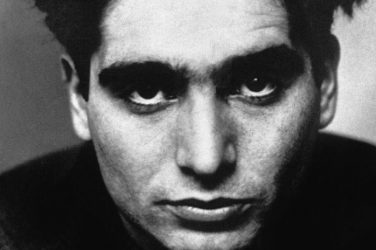The impact of pandemic-induced lockdown measures has been felt across industries, the performing arts included. With concert venues shut, large gatherings unimaginable, and social distancing expected to continue, artists have had to find new ways to engage with their fans and share their craft. A musician himself, Sam Hassan outlines the pandemic’s consequences for creatives as well as sources of support they can turn to.
COVID-19 has taken a huge toll on the economy, leaving those in vulnerable positions at the mercy of harsh market forces. The second most negatively impacted industry is the arts, entertainment and recreation sector, in which freelance creatives, such as musicians, are among those hardest hit. It’s easy to see why, as a lockdown on public life has meant the shutdown of the entertainment industry; all venues are closed, so artists, from independent to established, are deprived of their major source of income. They are also restricted in their ability to build and sustain networks, engage with fans or distribute products, all crucial for artist development. Moreover, these stressful, anxious times in which we are confined to our homes and unable to interact with the world, constitute far from ideal conditions for creativity.
Sources of support
Still, there have been some interesting responses. With grants, self employed support schemes and financial hardship funding, governments have in principle provided financial assistance for those most in need. How easy that will be to access though, is another question entirely.
In the UK, charitable organisations, including the Arts Council, the Association of Independent Music (AIM) and the Performing and Rights Society (PRS) have offered relief and emergency funds for freelance musicians in need of it most; yet, such limited resources will surely fall short in supporting all who are suffering. Organisations such as the musicians’ union are helping mitigate effects, by giving a voice to artists and actively seeking institutional change through acts like petitions. Furthermore, online platforms such as Bandcamp, a staple of independent artists, have offered support by waiving fees for artists on the first Friday of each month. Nevertheless, there is evidently a need for more comprehensive, structural change and a social safety net for musicians and artists at large, indeed for anyone in a precarious economic position.
Performing in pandemic times

During quarantine, the internet continues to offer exciting ways for artists to interact and collaborate, something which even COVID-19 has been unable to halt. A innovative trend has been the virtual concert, whereby artists, from DJs to singers, livestream a performance to fans through a streaming platform. Conducted from the artists residence and streamed to fans in their homes, this is proving to be a very intimate form of live performance. Having performed one myself, I can attest to how novel, personable and comfortable it feels; incredibly different from the atmosphere at traditional venues. Personally speaking, I felt able to express myself and communicate with fans quite freely, so it is something I will be interested in even post quarantine. Established artists, such as Charlie XCX, have also engaged in dramatically more intimate fan interaction, as they perform virtual shows, reveal unreleased material, and hold fan Q and As from their home.
Furthermore, the current situation offers a lot of opportunities for independent artists, as streaming services are starved for fresh content. This is an ideal time to release music, as people are stuck sat at home, desperate for entertainment at a repetitive, stressful time. Artists are also monetising their craft in other ways, such as by selling merchandise or commercialising their skills, for example teaching music lessons or writing songs. Personally, I am trying to commercialise beat selling over online platforms such as YouTube. Nonetheless, this is a very difficult time for members of the creative industry and workers in all precarious industries. They form a significant proportion of society who deserve institutional change to better support them. Having said that, I believe the indomitable creative spirit of people will see continual innovation and adaptation despite adverse circumstances, aided with modern tools like social media and the internet.
Cover photo: Matthias Wagner (Unsplash), Unsplash licence











Show Comments
Comments are closed.